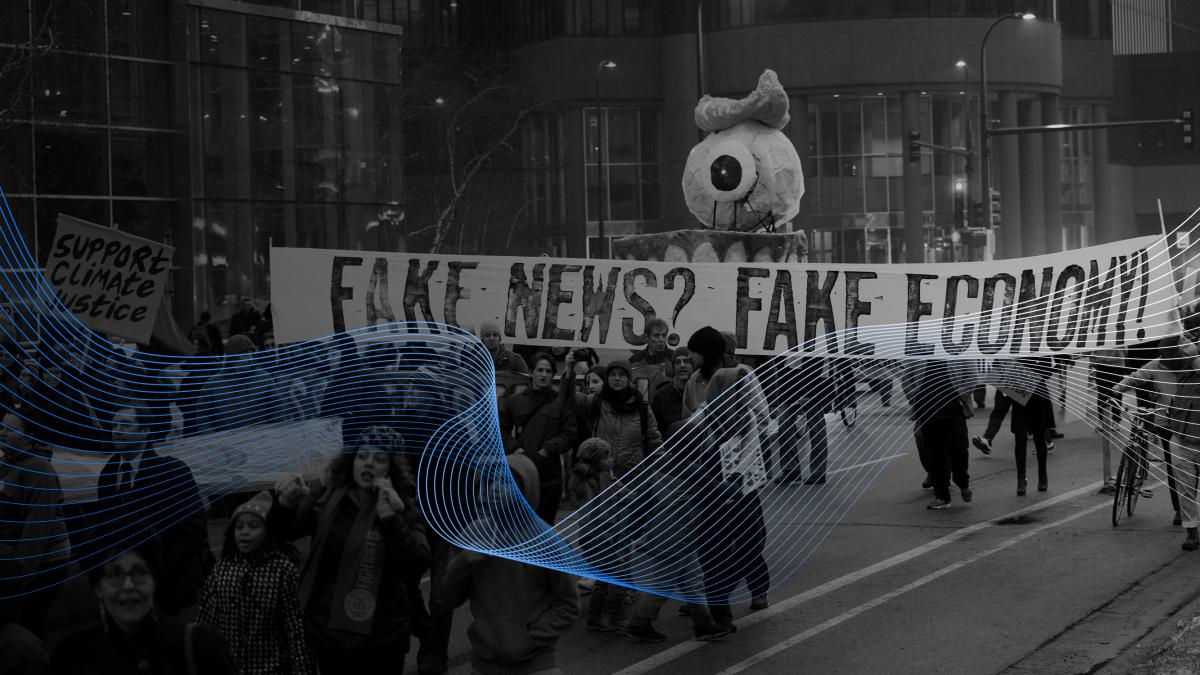This year’s Trust Barometer shows a surprising new trend — the polarization of trust — which allows us to look at the difference between countries with extreme trust gains and those with extreme trust losses. One of those differences: diverging views of the trustworthiness of news sources.
A World Moving Apart
For the first time, the world is moving apart in trust. In previous years, country-level trust has moved largely in lockstep. Countries with extreme changes in trust generally moved in the same direction, with multiple countries posting either steep trust gains or losses. This year, however, we see an equal number of countries moving in opposite directions.
No country saw steeper declines than the United States, with a 37-point aggregate drop in trust across all institutions. Joining the U.S. are Italy (-21), Brazil (-17), South Africa (-17), India (-13) and Colombia (-13). At the opposite end of the spectrum, China experienced a 27-point gain, more than any other country, followed by the UAE (+24), South Korea (+23), Sweden (+20), Malaysia (+19) and Poland (+17).
Business in a Polarized World
This polarization creates significant challenges for businesses, especially multi-nationals who must navigate very different mind-sets. Countries that are feeling optimistic and increasingly confident in their institutions are looking for business to lean in and invest in jobs and skills to keep their workforce globally competitive.
Those that are losing trust in their institution are in a different mood, looking to business for increased safeguards around privacy, investment in the economy and, tellingly, asking for business to play a role in guarding information quality. Where trust loss is extreme, the institutions of government and the media are distrusted, while business has retained trust at a level comparable to countries with trust gains. Business, in other words, is being asked to fill the void left by the institutions that are not trusted to do their job.
No Trust Without Truth
Ultimately, the most profound difference between trust gainers and trust losers comes down to the confidence those countries have in their sources of news and information.
Globally, the data reveals a first-time-ever significant divergence of trust in journalism, up five percentage points, and trust in search and social media platforms, down two points. For the first time, professional news content is gaining confidence, over the platforms and distribution channels that have delivered convenience but also created confusion about which content is trustworthy and which is not. That trend is mirrored in countries with more stable, typical trust changes (journalism trust up seven, platform trust down three).
In countries at the extremes, however, the trend is different. Where there have been extreme trust gains in the last year, confidence in both journalism and platforms has increased. Where there have been extreme trust losses however, platforms have lost significant amounts of trust (down six points)—and journalism has not seen the increased confidence it has experienced in other countries, falling three points in trust instead.
Countries in which people are losing trust in their institutions are losing faith in platforms, and not gaining confidence in journalism as a source of a shared understanding of the truth, creating a net decline in overall confidence in news sources.
Which makes it all the more important for business, along with all institutions, to help fill the void.
Tonia Ries, global executive director, Intellectual Property.





